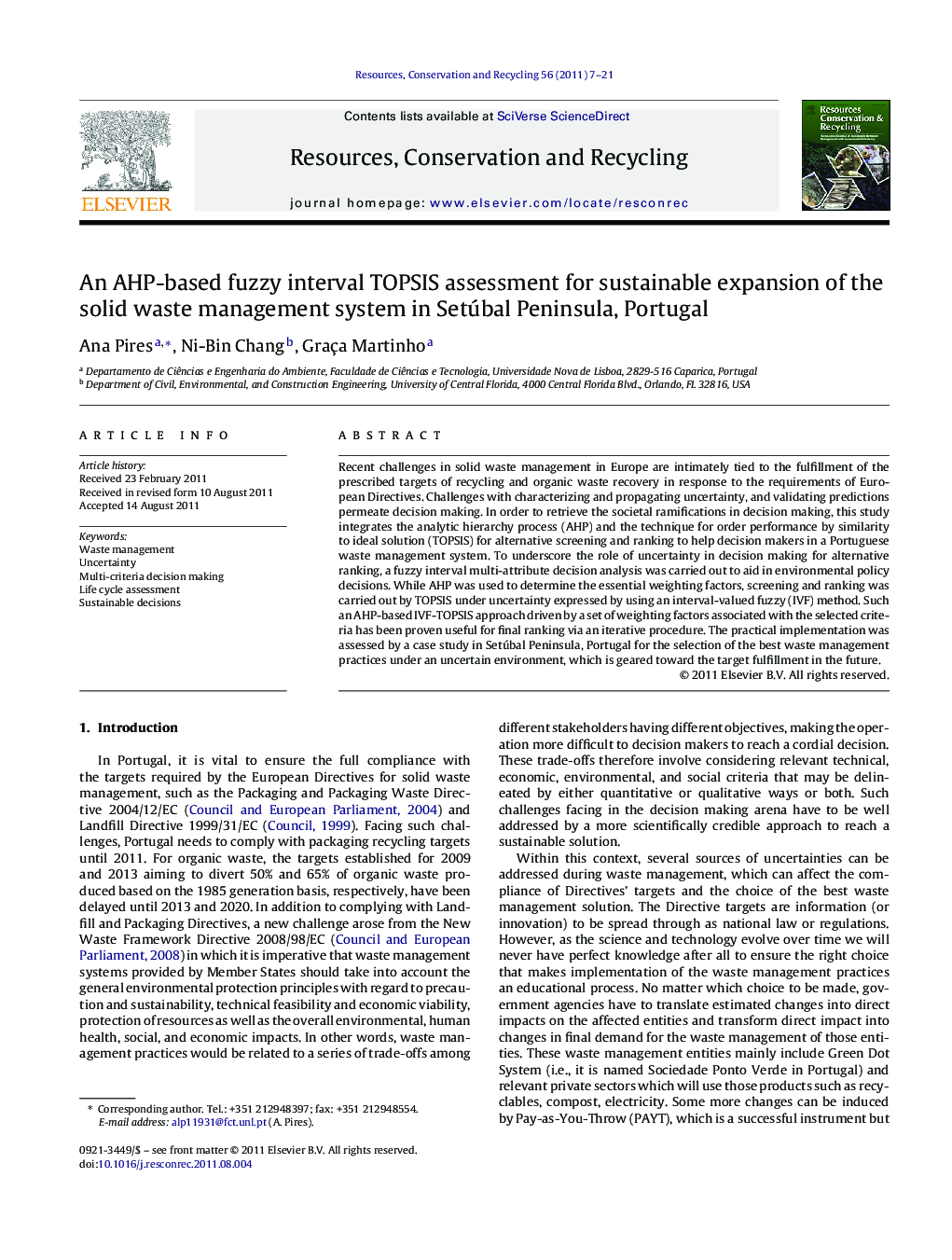| Article ID | Journal | Published Year | Pages | File Type |
|---|---|---|---|---|
| 1063337 | Resources, Conservation and Recycling | 2011 | 15 Pages |
Recent challenges in solid waste management in Europe are intimately tied to the fulfillment of the prescribed targets of recycling and organic waste recovery in response to the requirements of European Directives. Challenges with characterizing and propagating uncertainty, and validating predictions permeate decision making. In order to retrieve the societal ramifications in decision making, this study integrates the analytic hierarchy process (AHP) and the technique for order performance by similarity to ideal solution (TOPSIS) for alternative screening and ranking to help decision makers in a Portuguese waste management system. To underscore the role of uncertainty in decision making for alternative ranking, a fuzzy interval multi-attribute decision analysis was carried out to aid in environmental policy decisions. While AHP was used to determine the essential weighting factors, screening and ranking was carried out by TOPSIS under uncertainty expressed by using an interval-valued fuzzy (IVF) method. Such an AHP-based IVF-TOPSIS approach driven by a set of weighting factors associated with the selected criteria has been proven useful for final ranking via an iterative procedure. The practical implementation was assessed by a case study in Setúbal Peninsula, Portugal for the selection of the best waste management practices under an uncertain environment, which is geared toward the target fulfillment in the future.
► Integrating AHP with TOPSIS to help decision making for solid waste management featured with sustainable expansion challenges. ► Answering sustainability assessment issues with the implications of life cycle assessment (LCA). ► Promoting uncertainty analysis for reliable environmental decision making.
